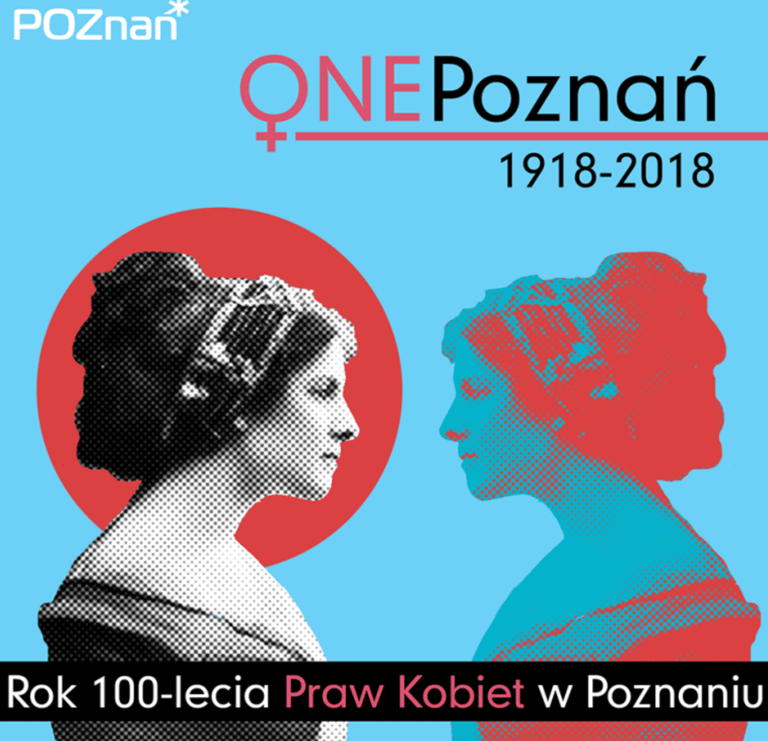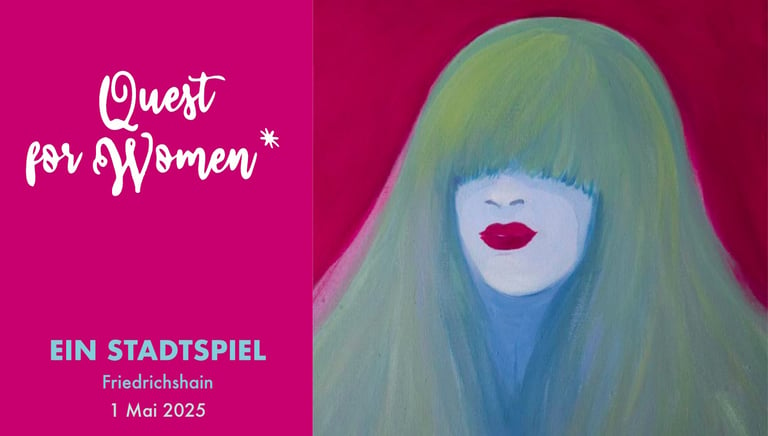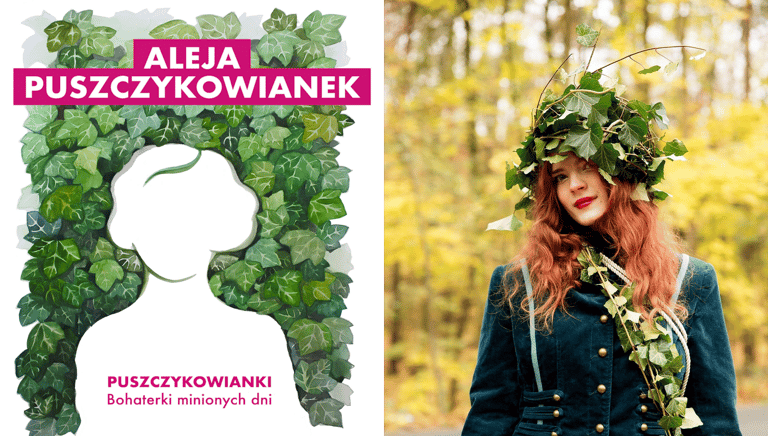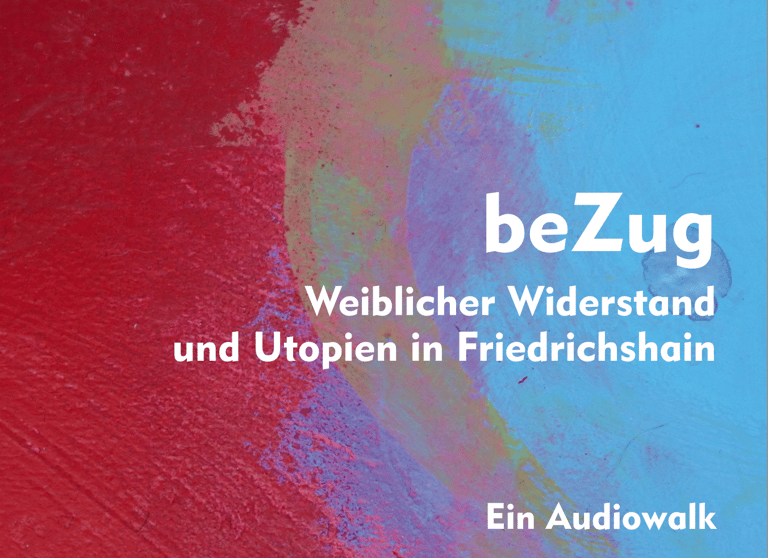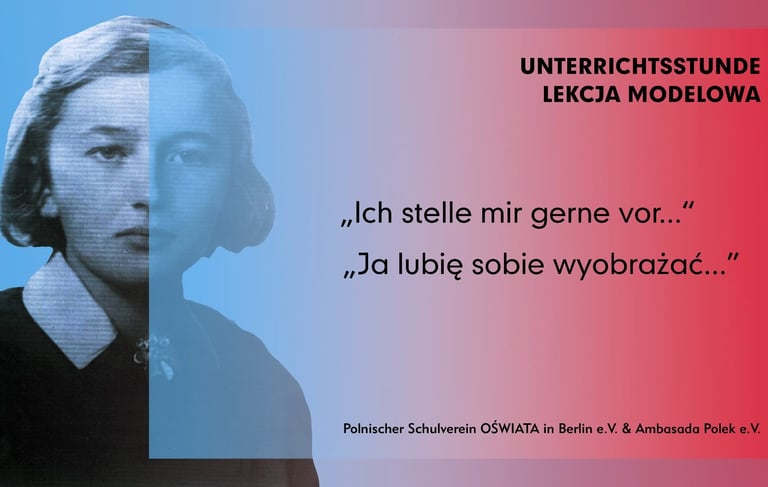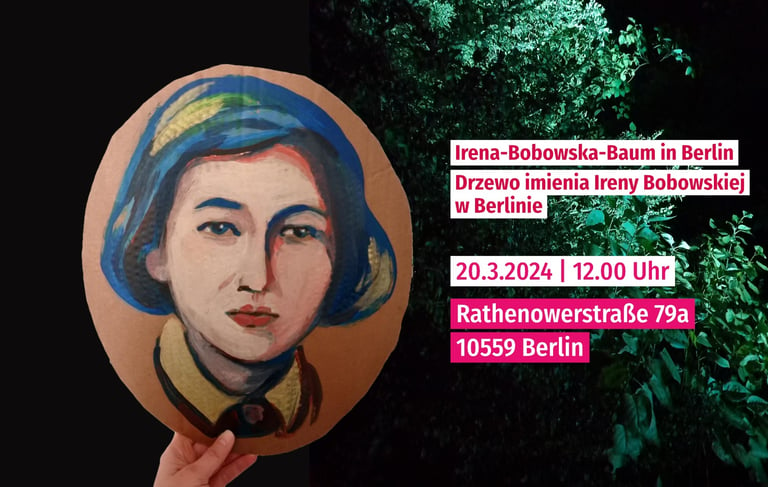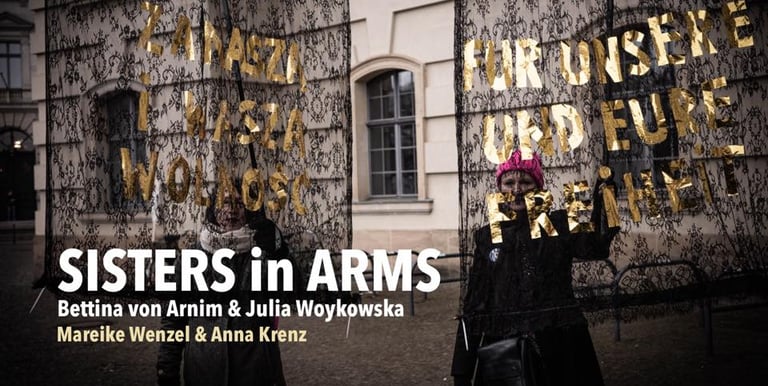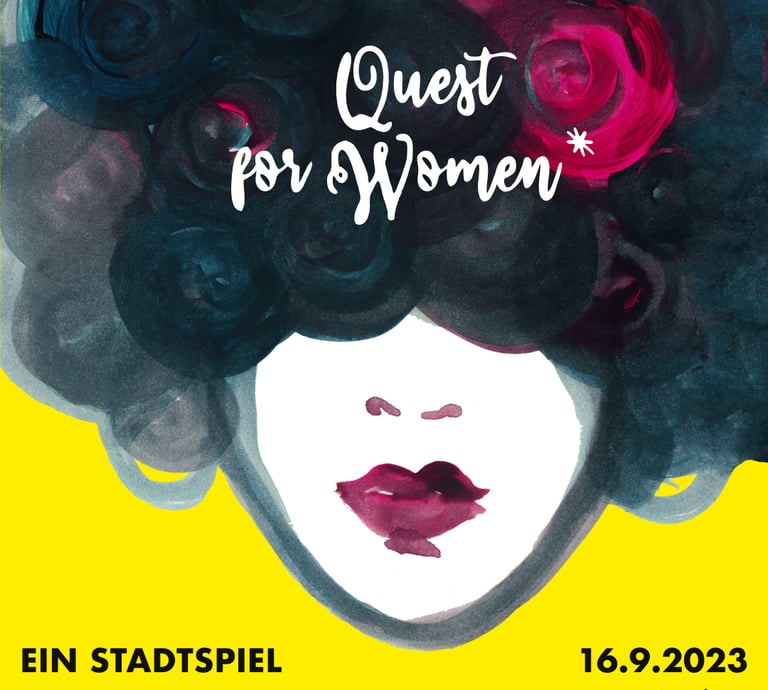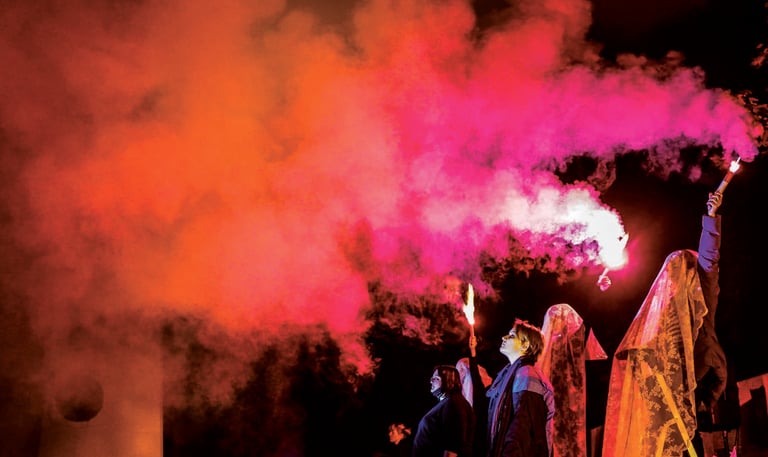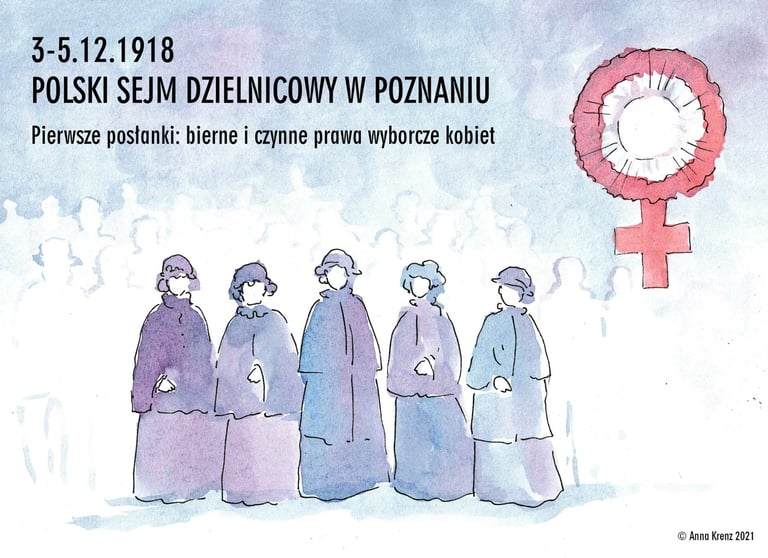HERSTORIES
Why should we talk about history? Why should we talk about HERstory? We learn from history and can see what happens around us in a wider perspective. Most things are not new, they already happened before. How did people deal with crucial issues in the past? Can we learn from them? HERstory – is history of the missing part of the society – women. „History is written by the winners“ the old saying says. Since in most countries women have passive and active voting rights since ca. 100 years only, they can study since ca. 100 years only – they (we!) have to catch up with centuries of culture, politics and social life. Women are not enough present in school books, archives and public space. Time for a change!
Quest for Women*
FRIEDRICHSHAIN EDITION
A herstory street game, based on historical women in Friedrichshain, Berlin. 2025
Project financed by Förderung Kultureller Projekte des Bezirks Friedrichshain-Kreuzberg. From project fonds Kultur am 1. Mai
Puszczykowianki,
Heroines of past days
Herstory project about women of Puszczykowo with discussions, exhibition, art workshops and city quest.
2024
The initiative is co-financed by the project “Strengthening Europe with SPLOT values” co-financed by the European Commission CERV Programme “Citizens, Equality, Rights and Values” for 2021–2027 and the Poznań District funds.
beZug
Female resistance
and utopias in Friedrichshain
Art and Audio project by Anna Krenz and Mareike Wenzel
September, 2024
MORE >>>
Project financed by Bundesministerium für Familie, Senioren, Frauen und Jugend im Rahmen des Bundesprogramms (Demokratie leben! (www.demokratie-leben.de); VIA e.V.
Ich stelle mir gerne vor...
Education project: a model history lesson on World War II based on the biography of Irena Bobowska, a Poznań resistance activist executed during the war in Berlin. Instead of discussing the facts and chronology of the war, these lessons focus on a creative approach to storytelling and the participation of students.
2024
Project financed by Stiftung Erinnerung, Verantwortung, Zukunft, EVZ
Irena Bobowska's
Tree of Remembrance
An initiative to permanently commemorate Irena Bobowska, a Polish resistance activist in Berlin - the Tree of Remembrance. In November 2024, another Tree of Remembrance was named after Bobowska in Poznań, Poland.
2024
Frauen im Schatten der Guillotine. Polinnen hingerichtet in Plötzensee.
Project "Women in the shadow of the guillotine. Polish women executed in Plötzensee". More than 40 Polish women were executed in Plötzensee during the Second World War. The aim of the project was to enrich public knowledge with information about Polish women who were victims of the Nazi regime in Berlin. The project consisted of a research part, 3 workshops and an exhibition. 2023/2024
Project financed by Stiftung Erinnerung, Verantwortung, Zukunft, EVZ
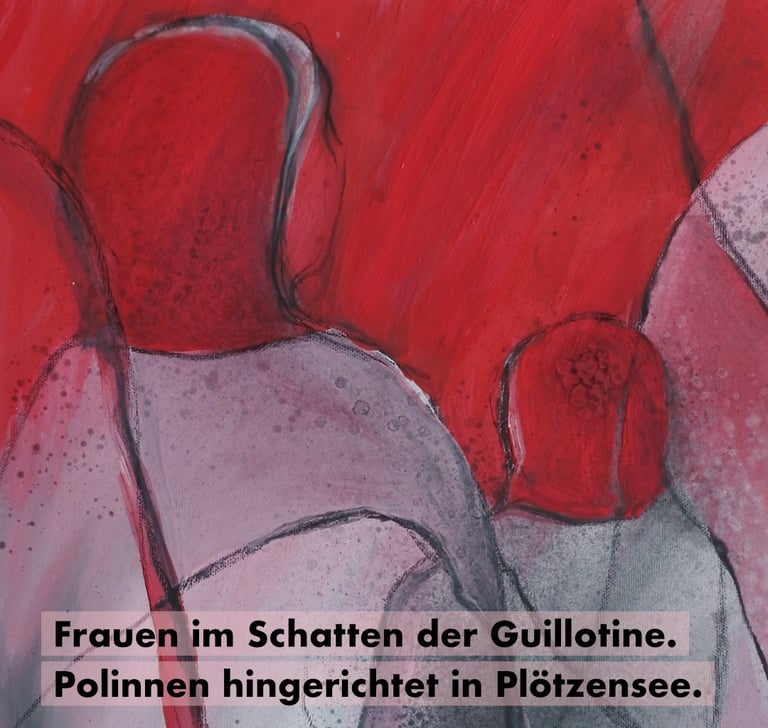

Sisters in Arms
A project by Anna Krenz and Mareike Wenzel about the friendship and joint work of Julia Woykowska and Bettina von Arnim.
2023
Project financed by Bezirksamt Tempelhof-Schöneberg - Dezentrale Kultur Arbeit
Quest for Women*
KREUZBERG EDITION
A herstory street game, based on historical women in Kreuzberg, Berlin.
2023
Project financed by Bundesministerium für Familie, Senioren, Frauen und Jugend im Rahmen des Bundesprogramms (Demokratie leben! (www.demokratie-leben.de); VIA e.V.
Irena Bobowska,
the forgotten HERoine
The project "The Missing Half of History" is an attempt to complete the Polish-German history by remembering the Polish women* who fought for freedom during World War II. Our heroine is Irena Bobowska, a poet and resistance fighter from Poznań who was executed by the Nazis in Berlin at the age of 22.
A project by: Anna Krenz and Ewa Maria Slaska
2022
Project financed by Senatsverwaltung für Kultur und Europa, Berlin; Recherche gefördert vom Fonds Darstellende Künste aus Mitteln der Beauftragten der Bundesregierung für Kultur und Medien www.fonds-daku.de
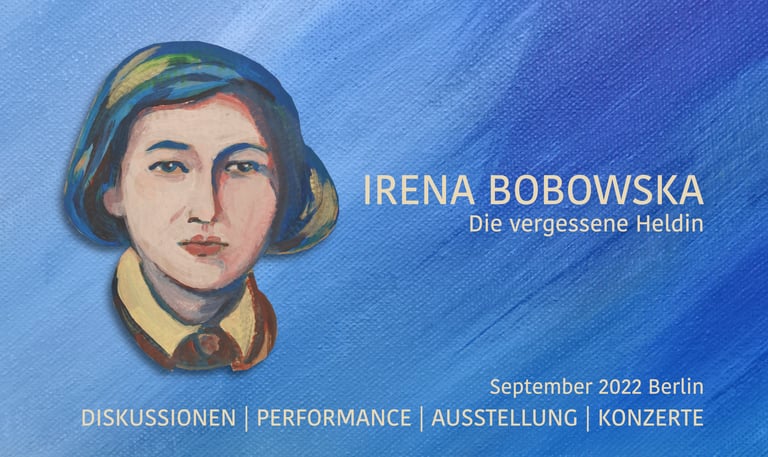

All Saints / Dziady
Instant theatre protest - based on Adam Mickiewicz's "Dziady" epos, a herstory of women from the past and present. Spirits of a witch, Rosa Luxemburg and Maria Janion were called upon in a spectacle. Part of the "Bloody Weeks" series of protests and actions.
1.11.2020
Women's voting rights in Poland (Poznań)
December 3, 2021 – 103rd Anniversary of the Polish District Sejm.
Polish women from the Prussian partition (Greater Poland and Silesia) were the first in Poland to enjoy passive and active voting rights in practice. It was in Poznan that for the first time in the history of Poland women sat in the parliament!
ONEPoznań
In 2018 I worked for the Mayor of Poznan (Poland) and we developed a project – a website – for the 100th Anniversary of Poland‘s Independence and Polish women‘s voting rights. I was responsible for graphics and content. The website presented both historical and contemporary of Poznań. A rich calendar of events, biographies, interviews and articles were presenting important activities and personalities of Poznań. Unfortunately, as the website was supposed to promote the forgotten or erased part of the society - women, after a year, the Mayor deleted the whole website without informing us. Project by Anna Krenz and Agata Grenda
2018
Project financed by the Mayor of Poznań Office
